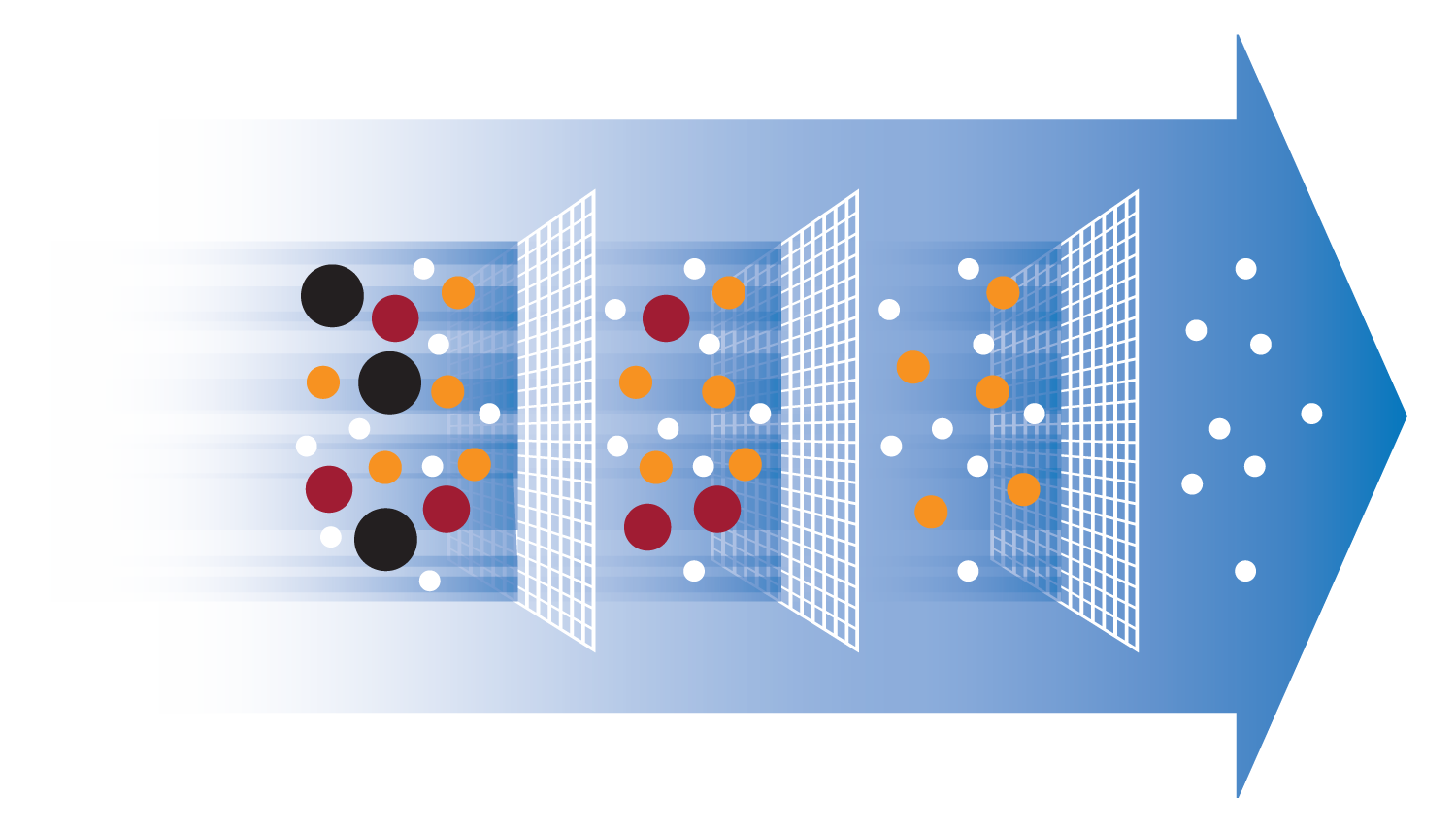Engineer a filter to clean up the water!
How it works
Most filters clean water by removing particles with a physical barrier. For example, a coffee filter lets the coffee flow through, but keeps the coffee grounds separate. This cleans up soil and bacterial pollution. Other filters work by chemically cleaning the water. This cleans up chemical pollution.

Try this at home
- Find things in your home that can be used to filter water.
- What are some ways your home can make less dirty water?
Definitions/glossary
- Environmental Engineering: Environmental engineers design solutions to improve the natural environment, including preventing and cleaning up pollution.
- Pollutant: Pollutants are contaminants introduced into the environment that have a negative impact on the environment and natural resources.
- Filter: Filters remove pollutants from water with physical, chemical, and biological processes.
What's going on at the University
Researchers at the University of Waterloo are developing innovative ways to treat waste water. The filter that you made at the Ontario Celebration Zone is very similar to current water treatment systems. These systems remove common particles and most waterborne organisms. Frank Gu's research is focussed on using nanotechology to remove low-level pollutants that make their way into the water system. His team is multi-disciplinary. This means that all kinds of engineers and scientists are working together on developing a solution.
How to become a environmental engineer
The first step to becoming an environmental engineering student is to graduate from high school with the required math, chemistry, physics, and english courses. After high school, you will attend an accredited engineering program. Environmental engineering students at Waterloo learn to clean up or prevent pollution of our air, water, and soil. They also ensure a sustainable future through the application of science and technology.
The co-operative study program will provide you with up to 24 months of practical experience complements and reinforces in-class learning. This will prepare you for a career as an environmental engineer.